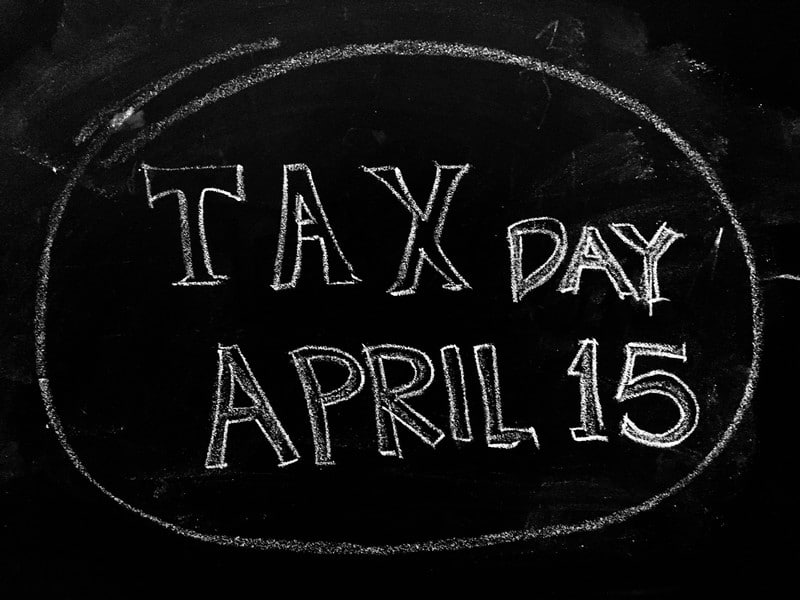It’s a New Year, which means tax season is coming up fast, just a few months away. And that means it is crunch time for tax professionals all across America.
Many people are probably scrambling right now to gather all their books, records, bank statements and receipts that a tax professional will need to file that tax return ahead of the April 15th deadline.
But if you’re like most successful people, you probably expect to owe the IRS money, so what’s the rush? Slow down, don’t move too fast to file a hastily prepared tax return. Because if you do, it can cost you money.
Your best strategy might be to take your T-I-M-E by filing an extension for your tax return, so you and your tax pro can make absolutely sure that you’re taking full advantage of every possible deduction the tax code allows.
Also, filing an extension will allow you to take advantage of any retroactive changes made to the tax law by Congress that might be made after the April deadline, without the added time and expense of filing an amended tax return.
Here’s how to determine if an extension is the right move for you and your business to make, and how to go about it.
Why File an Extension: The Top Four Reasons
There are several very compelling, potentially money-saving reasons why you may want to consider filing an extension, including the following:
#1: Get it Right the First Time
As stated above, there’s always a mad rush to get tax returns finished by the mid-April deadline, and, when in a rush, mistakes can happen both by accountants and taxpayers.
For instance, it’s not uncommon for some vital tax information, such as Schedule K-1s for partnership income or Form 1099 for self-employment earnings, to arrive too late to allow you to complete your tax return by the April deadline.
Fling an extension for your tax return gives your professional time to make sure all supporting records are accurate and that all qualified deductions you’re entitled to are properly taken, so you get your return right the first time without the need to file amended returns after the fact.
#2: Gain Valuable Time to Plan for Your Retirement
As a business owner, you have plenty of choices when it comes to feathering your nest egg. Self-employed folks might want to fund SEP-IRAs, 401(k)s, or SIMPLE-IRA plans for themselves.
Filing an extension provides you with an additional six months to meet with your financial planner or other investment professional to figure out which options work best for you, AND which of these choices will deliver you the biggest tax deduction in the process.
#3: Avoid or Reduce IRS Penalties
P-E-N-A-L-T-I-E-S are the single most important reason to file for an extension rather than simply missing the April 15th deadline. The IRS hits tardy taxpayers with two basic types of penalties: A late filing penalty of 5% per month on any tax due, up to a maximum penalty of 25%, plus a late payment penalty of a half-percent a month.
But, if you file an extension by April 15th, and then file your return by the extended deadline of October 15, you’ll avoid the 5% monthly late filing penalty. You’ve effectively deferred the late filing penalty until mid-October when your extended deadline comes due.
#4: Extend Your Tax Refunds into the Future
Some folks end up filing their taxes several years late due to any number of business or personal complications. But there is only a three-year deadline for you to receive a refund check from the IRS if it turns out that you’re due one.
This three-year statute of limitations begins on the original filing deadline —April 15, 2020 for tax year 2019. But if you file an extension for your tax return, the refund statute of limitations is also extended by six months, just like your filing deadline, to October 15th!
How to Extend Your Filing Deadline
As you can see, there are many very good reasons why you should consider filing an extension for your tax return. There is only one bad reason.
Filing for an extension gives you an extra six months to file your tax return. But it does NOT give you extra time to pay the taxes you owe.
However, in cases where your cash flow just can’t handle a hefty tax bill on the spot, there are alternatives to consider, such as requesting an installment agreement which reduces penalties and allows you to pay the taxes owed in more manageable monthly chunks until it’s paid off.
The Bottom Line
The more complex your taxes are, depending on your business dealings, the more likely you are to benefit from filing for an extension. Filing a tax extension is free, easy and automatic: Just have your tax professional submit Form 4868 electronically or on paper by the April filing deadline.
Doing so automatically gives you an extra six months to file, and you’ll also avoid the aggravation that often comes with trying to pull everything together by tax time.
To find out more and see if filing for an extension is the right move for you and your business, simply reach out to us at (772) 257-7888.

